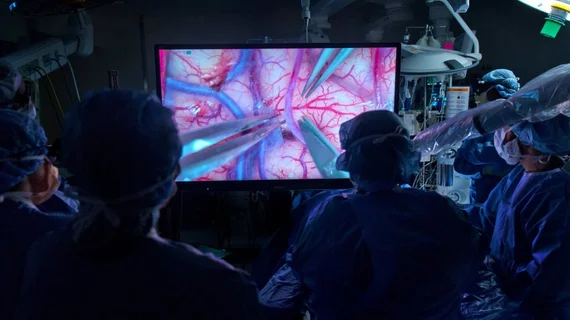Assistive surgical devices earn top prizes at biomedical design competition
Several assistive surgical devices took home top prizes during this year’s Design by Biomedical Undergraduate Teams (DEBUT) challenge, arranged by the National Institute of Biomedical Imaging and Bioengineering (NIBIB) and VentureWell.
The DEBUT challenge is an annual competition that recognizes undergraduate excellence in biomedical design and innovation. Entries are judged on factors including significance of the problem being addressed, impact on potential users and clinical care, innovative design and the working prototype.
This year’s challenge featured 36 teams from 25 universities in the United States. According to a press release, “projects focused on providing simple, low-cost modifications to surgical techniques that could reduce pain or damage from these procedures dominated” this year’s competition.
According to the release, a team from Johns Hopkins University, in Baltimore, Maryland, won first place for its minimally invasive brain retractor that “provides safer surgical access to the brain for neurological operations.”
A team from Clemson University, in South Carolina, won second place for developing a device that can “assist in the resection of the tibia (one of two bones in the lower leg), helping reduce the amount of vein and ligament damage and other complications during total knee replacement procedures.” A team from the Georgia Institute of Technology, in Atlanta, won third place for a device that facilitates the placement of epidural anesthesia during labor and delivery.
Another team from Clemson was honored for creating a device that helps guide surgeons when they replace orthopedic screws to set and repair bones, while a team from the University of California, in Riverside, won an award for designing a magnetic ankle brace that aims to provide personalized support, according to the release.

